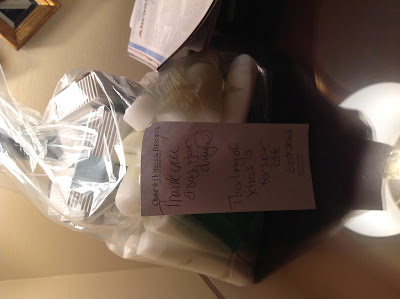Katharine Hepburn with signs she posted outside her country house in Connecticut. Ambivalent? Not in her case; she definitely wanted no intruders.
This image has been going through my mind a lot lately. I'm thinking that all of Europe, except maybe Germany, would like to post these signs right now, unaccompanied by a smiling face and a bouquet of flowers.
I've spent a week reading every news article I could find about the current migrant/refugee situation in Europe. I had a high-horse phase of thinking European countries are inhumane, self-protective, and grossly negligent. I've been appalled by comments left on the New York Times website by people who reduce the migrants to troublesome hordes of--what? They are human beings, after all.
This morning, I threw up my hands. Maybe the migrants/refugees (important distinction) are being short-sighted, too. They get to Europe and don't want to stay in a poor country, but they want one that will provide the best benefits and opportunities. Out of danger, they are no longer refugees but economic migrants? Too choosy? Per the New York Times, many people in the current influx are wealthier than those who migrated earlier; some are even supporters of Assad's regime. They quite naturally want to regain their socioeconomic standing as soon as possible.
Then there's the President of Hungary--what about THAT dude? A "Christian Europe" to be protected from the Muslim hordes? And what about all this talk of trains and camps? Scary, scary, scary.
Jerry and I were supposed to be in Europe in August, returning home yesterday. We would have flown from Stockholm to Paris on the day a terrorist tried to attack a Paris-bound train. We would have taken a Eurostar train from Paris to London a few days before three Eurostar trains were halted for four hours in the Chunnel, with no air-conditioning or lights, because of migrants on the tracks and on the roof of the trains. This could get personal very quickly if you're in Europe. Who am I to judge?
A complicated, tragic situation is all I can come up with.
* * * * *
And so to quilting (if only I could turn off NPR!).
Here's my current project, which I'm rushing to finish so that I can sew the blocks together while we're in Inverness for two weeks. Not finished yet, but here's a preview.
Naturally, there have been changes since I took this photo
Here's the picture I worked from, which I thought looked like a quick, easy, throw-it-together-from-scraps project (from Quilts! Quilts!! Quilts!!!):
Not exactly what I ended up with
I can't seem to let go of the idea of sewing together random strips--la, la, la!--whacking them into squares, and coming up with a scrappy genius of a quilt (right!).
I did try, sewing the strips, cutting them into blocks: A mess. Then I unpicked many of the blocks; rearranged many, many 2" x 5" strips; and re-did the design. A pain in the neck and very time-consuming. I never learn.
Onward.


















































